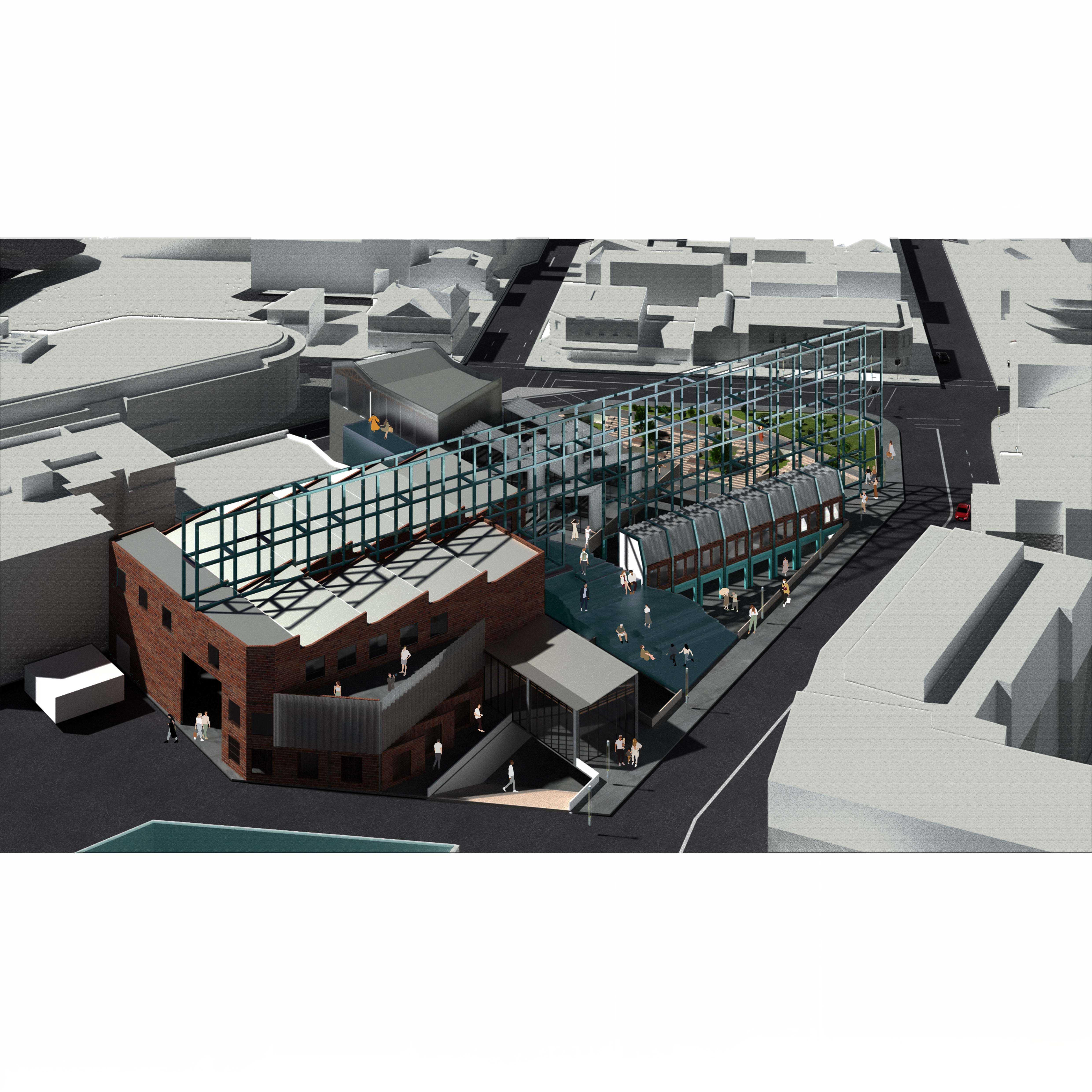
The Cultural Avenue
This thesis explores how architectural layering documents the sequential narrative of transformations, using Waterloo’s industrial heritage as a foundation. A proposed makerspace, the "Cultural Avenue," integrates historical and cultural elements, fostering creativity and community engagement. Adopting Eisenman’s concept of reading invisible systems, the design reuses existing buildings and introduces new grids, creating dynamic spatial experiences. Two main axes enhance pedestrian access and host public activities, emphasizing the public domain for interaction and collaboration. The "Cultural Avenue" aims to bridge communities, celebrate Waterloo's history, and redefine its cultural identity through adaptive reuse and innovative architectural strategies.
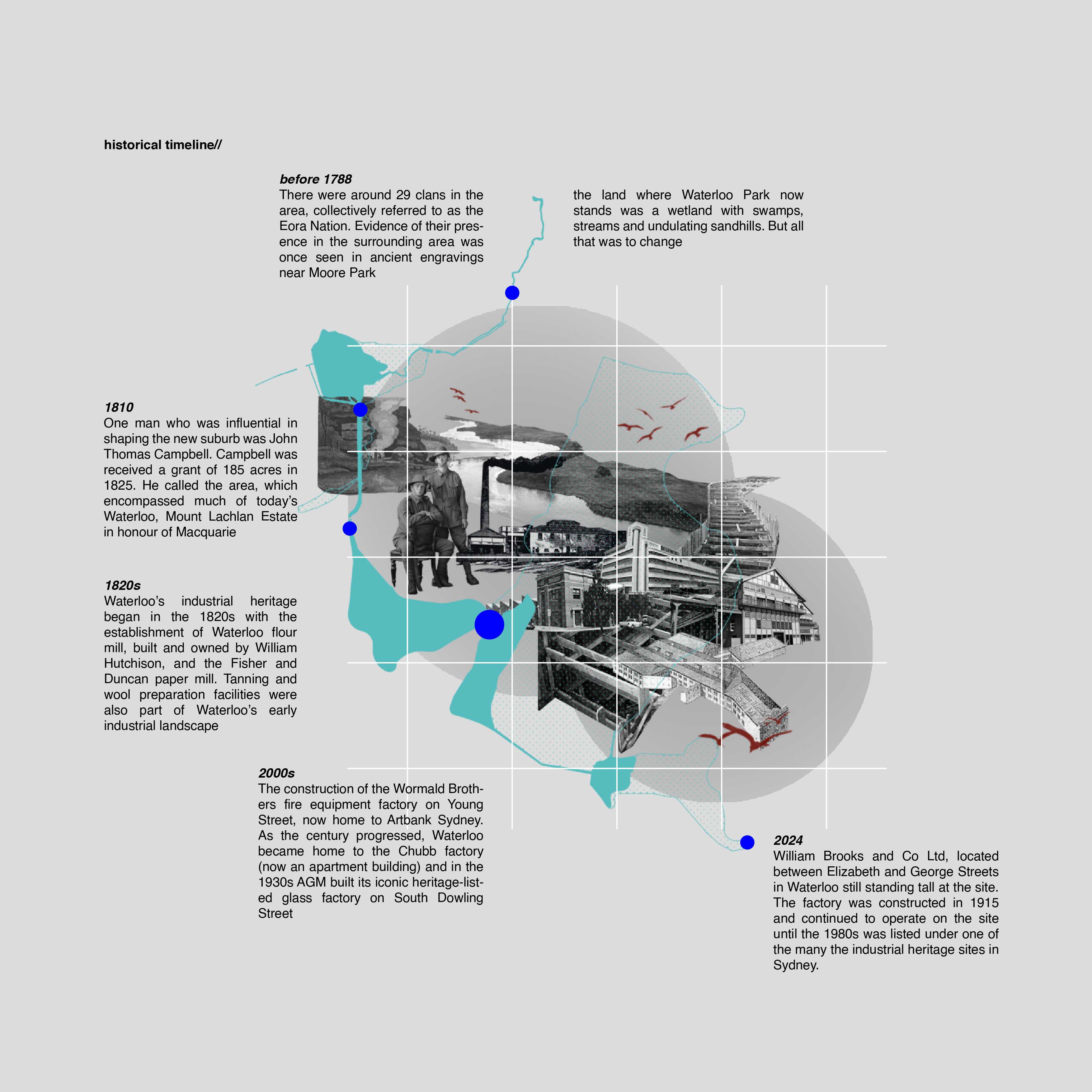
Historical Timeline
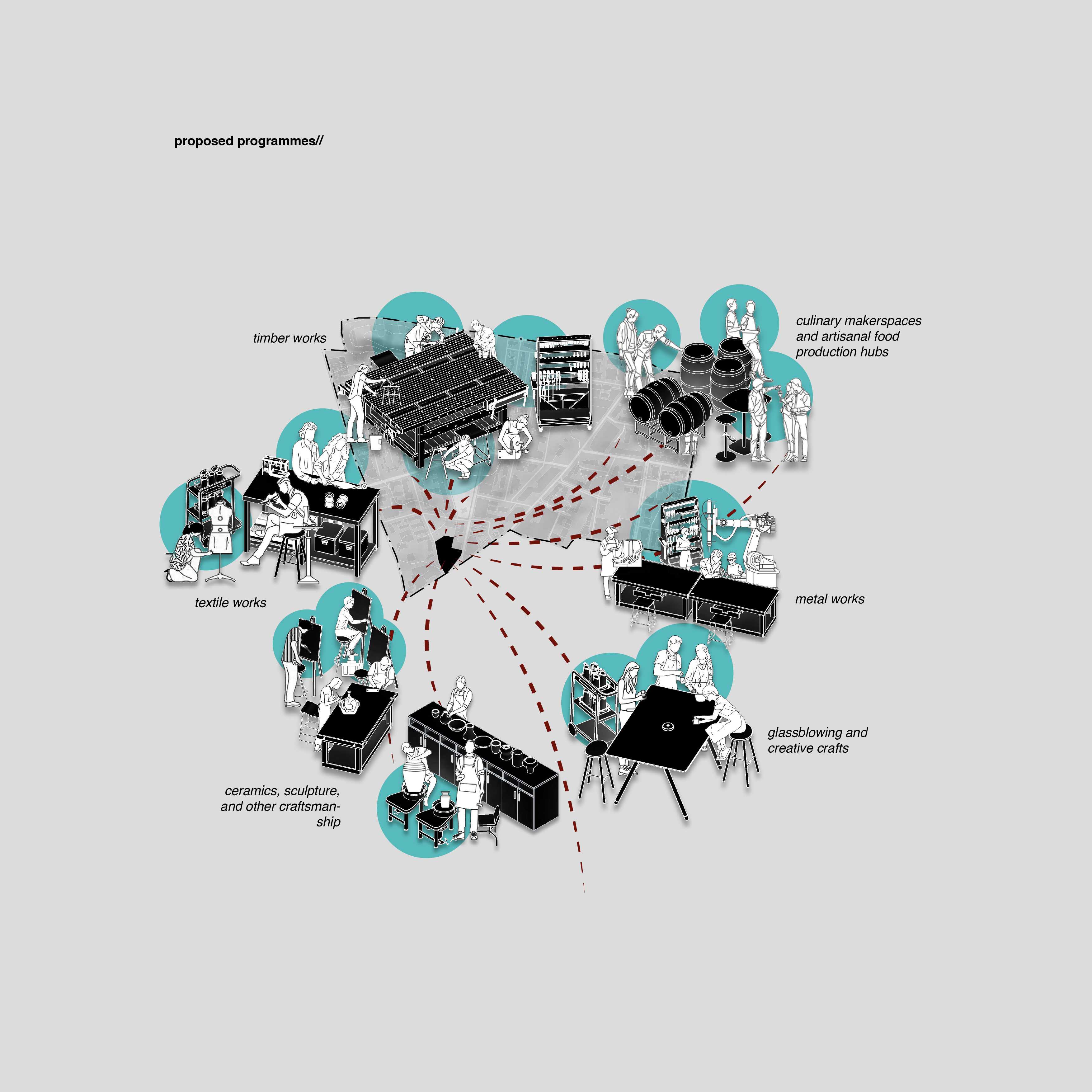
Adaptive reuse of Waterloo’s industrial heritage history into makerspaces
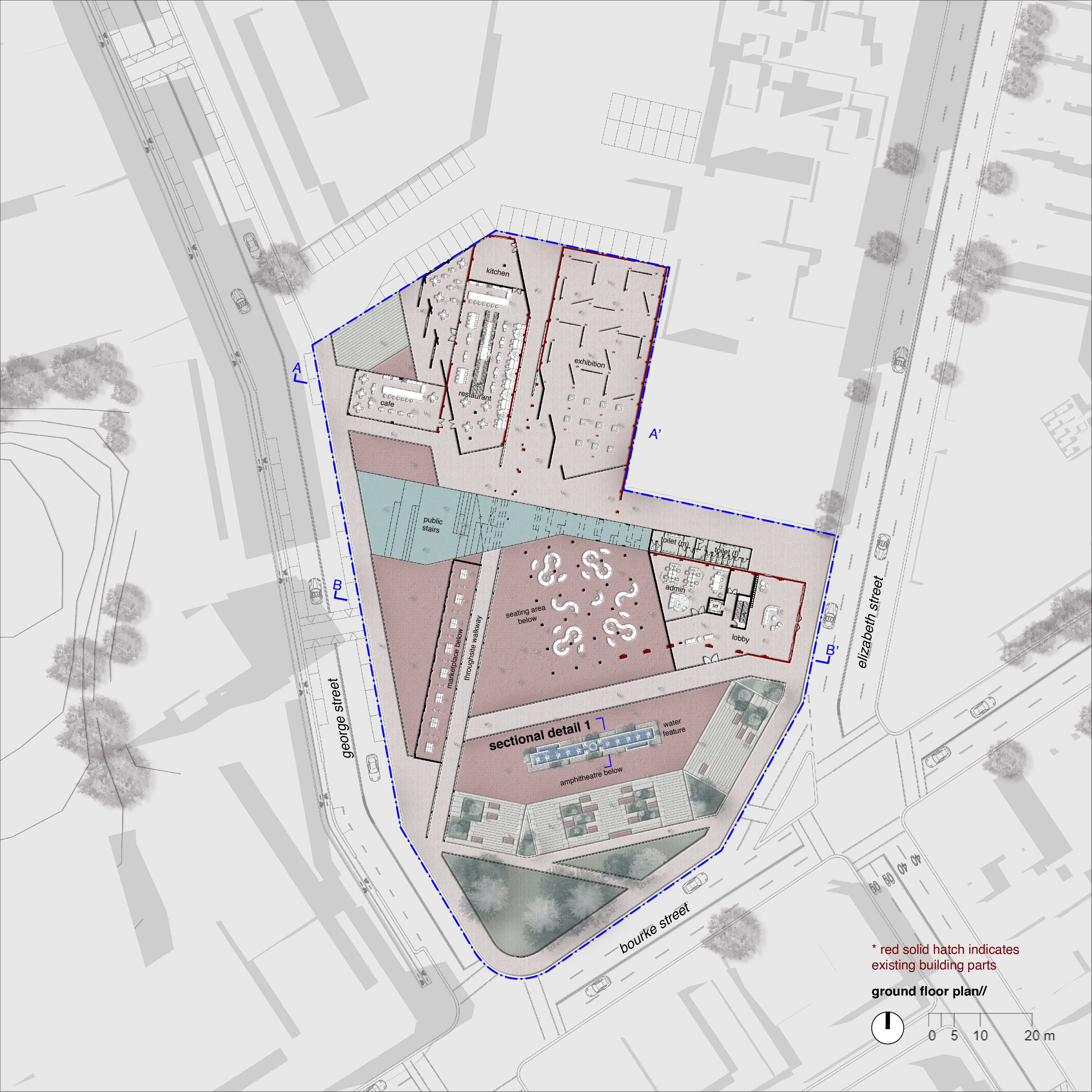
Shows layering of axes. Red solid hatch indicates existing building parts.
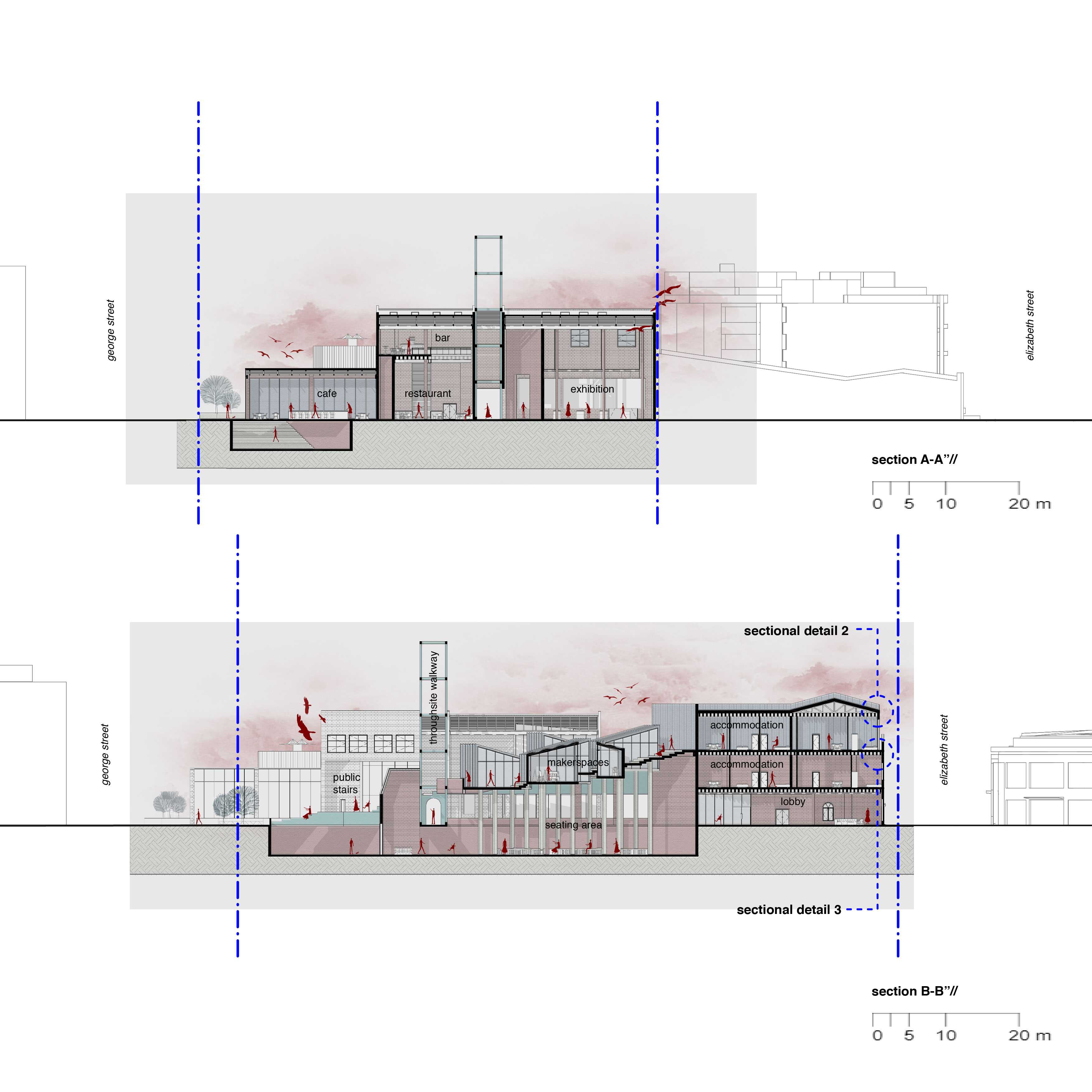
Showing visual layering.
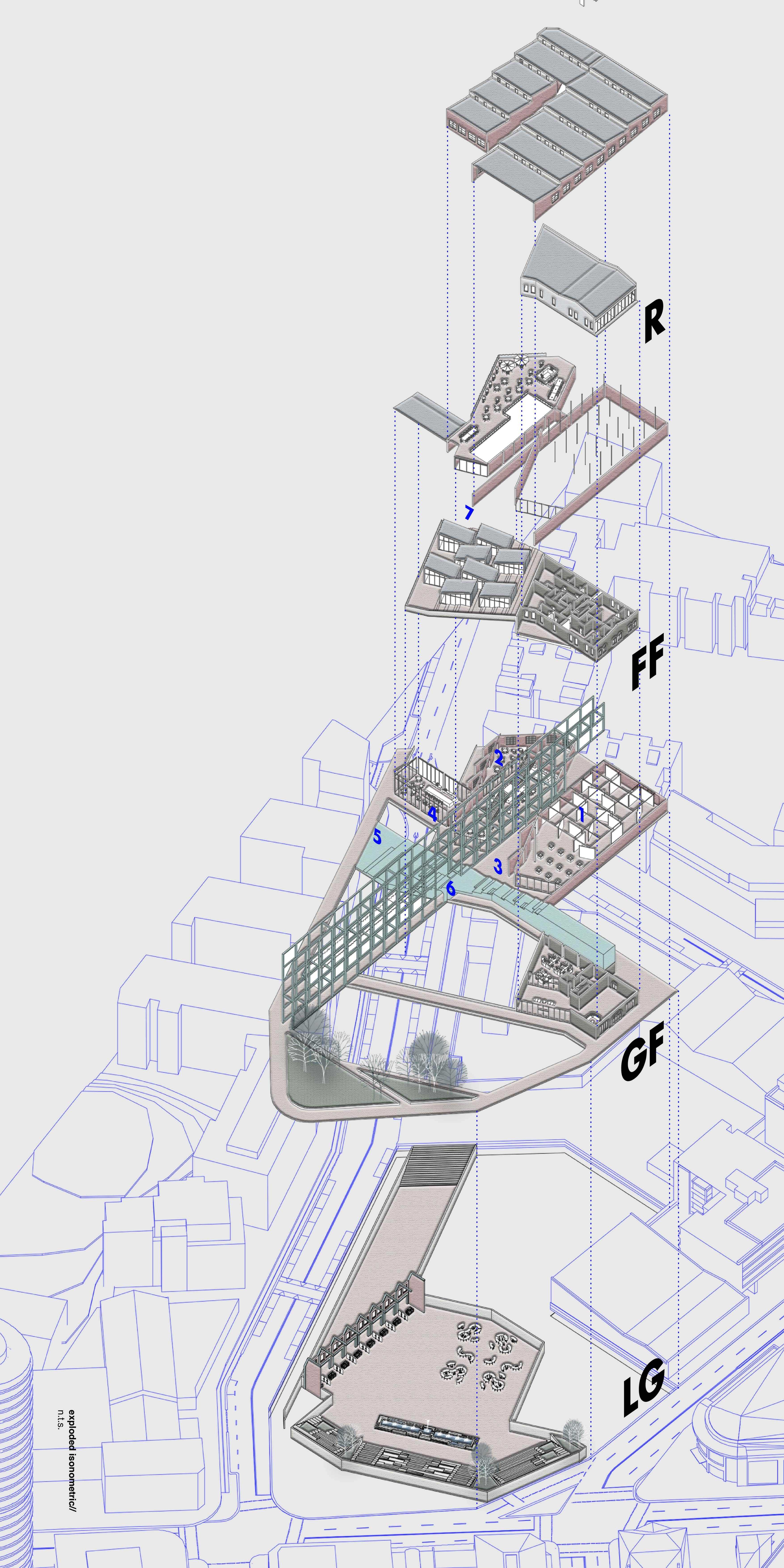
Showing spatial layering